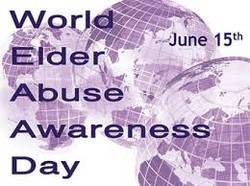 On June 15, a panel discussion was held on Elder Abuse vs. Violence against Older Persons. Sponsored by the Group of Friends for Older Persons, the panel included permanent representatives of member state missions to the UN and representatives of UN programs and non-governmental organizations. The panelists discussed the various issues surrounding this topic. The first concern discussed was the lack of consensus on how to define violence against older persons. The official definition of elder abuse – the single, or repeated act, or lack of appropriate action, occurring within any relationship where there is an expectation of trust which causes harm or distress to an older person – is controversial because it does not effectively encompass the complexities of violence against older persons. It does however highlight the fact that most violence is perpetrated not by an anonymous person in a care center but by a family member in the home. Indeed, the five most common types of violence are physical, sexual, psychological, financial, and neglect. Elder abuse is an immediate concern as life expectancy lengthens with the expectation that by 2060, 1/6 of the world population will be over 60 years of age. Despite this growing population, persons over 50 are grossly underrepresented in statistical data. The panelists concluded by urging member states to increase the transparency of violence and support the inclusion of age in a list of common discriminatory factors including race, gender, and disability within the proposed Post 2015 Sustainable Development Goals.
On June 15, a panel discussion was held on Elder Abuse vs. Violence against Older Persons. Sponsored by the Group of Friends for Older Persons, the panel included permanent representatives of member state missions to the UN and representatives of UN programs and non-governmental organizations. The panelists discussed the various issues surrounding this topic. The first concern discussed was the lack of consensus on how to define violence against older persons. The official definition of elder abuse – the single, or repeated act, or lack of appropriate action, occurring within any relationship where there is an expectation of trust which causes harm or distress to an older person – is controversial because it does not effectively encompass the complexities of violence against older persons. It does however highlight the fact that most violence is perpetrated not by an anonymous person in a care center but by a family member in the home. Indeed, the five most common types of violence are physical, sexual, psychological, financial, and neglect. Elder abuse is an immediate concern as life expectancy lengthens with the expectation that by 2060, 1/6 of the world population will be over 60 years of age. Despite this growing population, persons over 50 are grossly underrepresented in statistical data. The panelists concluded by urging member states to increase the transparency of violence and support the inclusion of age in a list of common discriminatory factors including race, gender, and disability within the proposed Post 2015 Sustainable Development Goals.